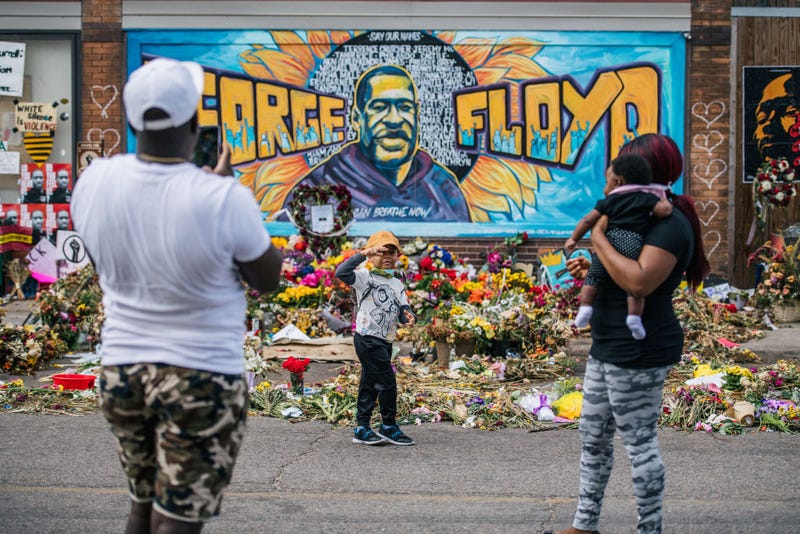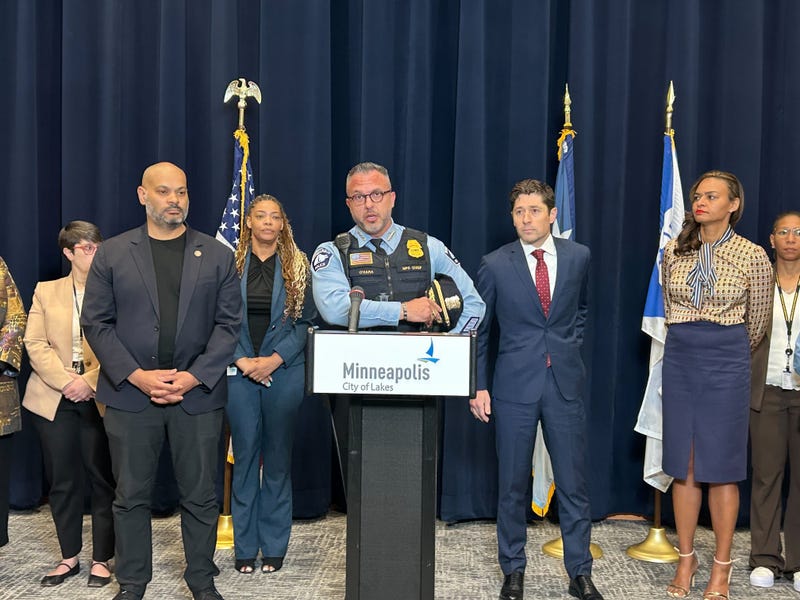
The Department of Justice’s Civil Rights Division will attempt to dismiss police-accountability agreements with the Minneapolis Police Department. They're also dismissing a similar suit against the Louisville Police Department.
This comes after the Biden administration’s attempt to reshape law enforcement in cities where killings by officers ignited outrage including George Floyd who was killed by former Minneapolis Police Officer Derek Chauvin five years ago.
Even without federal oversight, Minneapolis Police say they will to continue their reform efforts. The decision coming almost exactly five years after George Floyd's murder Minneapolis Mayor Jacob Frey calls intentional.
"It's not at all surprising that they chose this week, and so do we have concerns about what the Trump administration is going to do next? Of course we do, but I don't think they know what's gonna happen next," Frey said Wednesday.
“Overbroad police consent decrees divest local control of policing from communities where it belongs, turning that power over to unelected and unaccountable bureaucrats, often with an anti-police agenda,” added Assistant Attorney General Harmeet K. Dhillon of the Justice Department's Civil Rights Division. “Today, we are ending the Biden Civil Rights Division’s failed experiment of handcuffing local leaders and police departments with factually unjustified consent decrees.”
The Civil Rights Division will be taking all necessary steps to dismiss the Louisville and Minneapolis lawsuits with prejudice, to close the underlying investigations into the Louisville and Minneapolis police departments, and to retract the Biden administration’s findings of constitutional violations.
The reaction from the Minnesota Department of Human Rights - which has a separate consent decree with the MPD and City of Minneapolis - was swift, with the department saying it will continue to move forward.
“While the Department of Justice walks away from their federal consent decree nearly five years from the murder of George Floyd, our Department and the state court consent decree isn’t going anywhere,” said Minnesota Department of Human Rights Commissioner Rebecca Lucero. “Under the state agreement, the City and MPD must make transformational changes to address race-based policing. The tremendous amount of work that lies ahead for the City, including MPD, cannot be understated. And our Department will be here every step of the way.”
Minneapolis Police Chief Brian O’Hara reiterated at a news conference Tuesday that his department would abide by the terms of the federal agreement as it was signed, regardless of what the Trump administration decided. He reaffirmed that commitment to ongoing changes at the department again Wednesday.
"Members of the community that are a part of this work with us, that goes on regardless, and they are committed to moving forward with us together because it is ultimately to the benefit of our residents to do that," O'Hara adds.
Original DOJ Report on Minneapolis Police was a "Scathing" Indictment
Former U.S. Attorney General Merrick Garland announced the Justice Department findings in 2023, a scathing report that says Minneapolis Police consistently violated the rights of citizens.
"The patterns and practices we observed made what happened to George Floyd possible," Garland said at the time.
The federal investigation concerned whether the Minneapolis Police Department engaged in a pattern or practice of unconstitutional or unlawful policing. Such investigations typically look at the use of force by officers, including force used during protests, and whether the department engages in discriminatory practices. The investigation also assessed the way the department handled misconduct allegations and how it held officers accountable.
"There is reasonable cause to believe that the Minneapolis Police Department and City of Minneapolis engaged in a patter or practice of conduct that violates the First and Fourth Amendments of the United States Constitution," Garland said in 2023. "There is also reasonable cause to believe they engaged in conduct that violates Title Six of the Civil Rights Act of 1964, the Safe Streets Act, and the Americans with Disabilities Act."
The decision effectively closes the federal inquiry that began after George Floyd's murder, which focused on issues like use of force and discriminatory practices.
"Whether or not there is a federal consent decree, as the mayor has said, the work continues," O'Hara said. "We have been and we remain committed to real lasting change both for our residents and for the men and women who serve here."

Garland said they found many instances of Minneapolis Police using excessive force, unlawfully discriminating against Black and Native American people in enforcement activities, violating the rights of people engaged in protected speech, and discriminated against people with disabilities when responding to them in crisis.
After President Donald Trump came into office in January, his new Justice Department began to review these cases and paused the consent decrees in Minneapolis and Louisville while Attorney General Pam Bondi investigated them.
The DOJ now says the consent decrees sought to subject the Louisville and Minneapolis police departments to sweeping changes that went "far beyond the Biden administration’s accusations of unconstitutional conduct."
